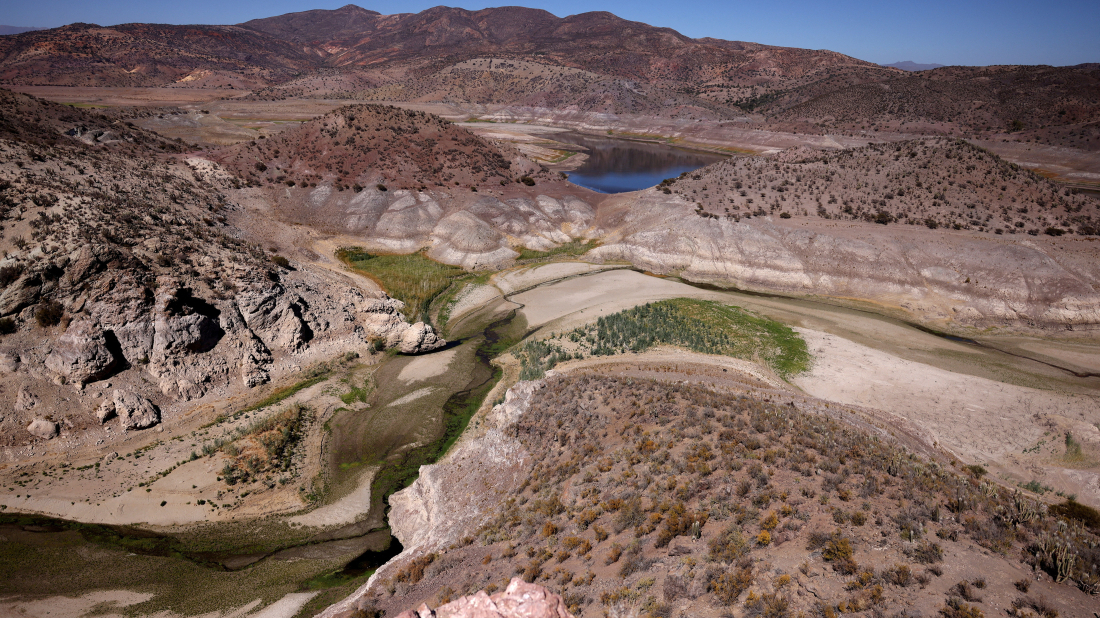'No red lines': Iran claims it has hit U.S. and allied bases after declaring them ‘legitimate target’
A senior Iranian official has warned Israel to “prepare for what is coming”, insisting that Tehran’s response to the latest escalation in the Mi...
Restoring degraded land globally requires $2.6 trillion by 2030. UN urges private sector action to combat rising drought risks and ensure food security for a growing population.
RIYADH (Reuters) - Restoring the world's degraded land and holding back its deserts will require at least $2.6 trillion in investment by the end of the decade, the U.N. executive overseeing global talks on the issue told Reuters, quantifying the cost for the first time.
More frequent and severe droughts as a result of climate change combined with the food needs of a rising population meant societies were at greater risk of upheaval unless action was taken, Ibrahim Thiaw said ahead of talks in Riyadh this week.
The two-week meeting aims to strengthen the world's drought resilience, including by toughening up the legal obligations of states, laying out strategic next steps and securing finance.
A large chunk of the around $1 billion a day that is required will need to come from the private sector, said Thiaw, who is Executive Secretary of the United Nations Convention to Combat Desertification (UNCCD).
"The bulk of the investments on land restoration in the world is coming from public money. And that is not right. Because essentially the main driver of land degradation in the world is food production... which is in the hands of the private sector," Thiaw said, adding that as of now it provides only 6% of the money needed to rehabilitate damaged land.
"How come that one hand is degrading the land and the other hand has the charge of restoring it and repairing it?," said Thiaw, whilst acknowledging the responsibility of governments to set and enforce good land-use policies and regulations.
With a growing population meaning that the world needs to produce twice as much food on the same amount of land, private sector investment would be critical, he said.
The talks in Saudi Arabia follow similar U.N. events in October on biodiversity and in November on climate change and plastics, where finance - or the lack of it - played a central role.
To hit $2.6 trillion - approaching the annual economic output of France - the world needs to close an annual gap of $278 billion, after just $66 billion was invested in 2022, the U.N. said.

LONG PROCESS
A U.N.-backed study released on Sunday said land degradation was "undermining Earth's capacity to sustain humanity" and failure to reverse it would "pose challenges for generations".
Land totalling around 15 million square kilometres - bigger than Antarctica - was already degraded, and was growing by about 1 million square kilometres each year, it added.
Getting agreement on hardening up the legal obligations of states, though, will be among the tougher deals to strike, Thiaw said, adding that some countries were "not ready to have another legally binding instrument" while others felt it was important.
While countries had already made commitments to protect around 900 million hectares of land, they needed to set a more ambitious target of 1.5 billion hectares and speed up the pace.
Failure to agree on steps to restore degraded land would ultimately hurt parallel U.N.-led efforts to rein in climate-damaging greenhouse gas emissions and protect biodiversity, Thiaw said, with agriculture accounting for 23% of greenhouse gas emissions, 80% of deforestation and 70% of freshwater use.
"The resources that we are talking about are not charity," Thiaw said, adding: "So it is important that we see this not as an investment for poor Africans, but as an investment that will keep the world balanced."
Tensions between the U.S. and Iran are escalating, with Washington ordering a significant military build-up in the region and multiple countries evacuating diplomatic staff amid fears of further instability.
The United States has begun "major combat operations" in Iran, President Donald Trump has confirmed, as Israel said it had launched a "pre-emptive" missile strike against Iranian targets. Iran has retaliated with strikes over Israel.
Russian President Vladimir Putin’s special envoy, Kirill Dmitriev, arrived in Geneva and may hold talks with U.S. officials, according to the RIA news agency.
Ankara has rejected media reports claiming it plans to deploy military forces into Iranian territory in the event of a U.S. attack on the Islamic republic.
Two people were killed and around 40 injured when a tram derailed in central Milan on Friday (27 February), a spokesperson for the local fire service said.
The death toll from heavy rains and flooding in Brazil’s Minas Gerais state has risen to 46, authorities said, with 21 people still reported missing. The storms triggered landslides and widespread flooding, displacing thousands across Juiz de Fora and Uba.
The administration of U.S. President Donald Trump on Thursday (12 February) announced the repeal of a scientific finding that greenhouse gas emissions endanger human health, and eliminated federal tailpipe emissions standards for cars and trucks.
Tropical Cyclone Gezani has killed at least 31 people and left four others missing after tearing through eastern Madagascar, the government said on Wednesday, with the island nation’s second-largest city bearing the brunt of the destruction.
Rivers and reservoirs across Spain and Portugal were on the verge of overflowing on Wednesday as a new weather front pounded the Iberian peninsula, compounding damage from last week's Storm Kristin.
Morocco has evacuated more than 100,000 people from four provinces after heavy rainfall triggered flash floods across several northern regions, the Interior Ministry said on Wednesday.
You can download the AnewZ application from Play Store and the App Store.

What is your opinion on this topic?
Leave the first comment